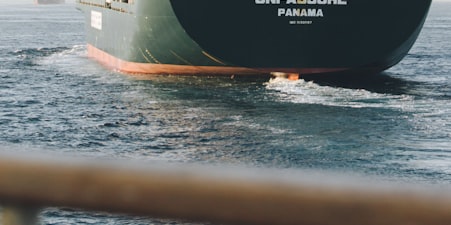
Singapore-based Berge Bulk is to retrofit the 210,000 dwt, 2018-built bulk carrier Berge Olympus with four BARTech WindWings by Yara Marine Technologies.
The large, solid wing sails will measure up to 50 meters in height and will be capable of reducing CO2 emissions by as much as 30% through a combination of wind propulsion and route optimization. By doing so, Berge Bulk aims to take a major step in assisting the broader industry in achieving its emission targets for 2050.
“This partnership with...
https://www.marinelog.com/technology/video-berge-bulk-to-retrofit-berge-olympus-with-windwings/








